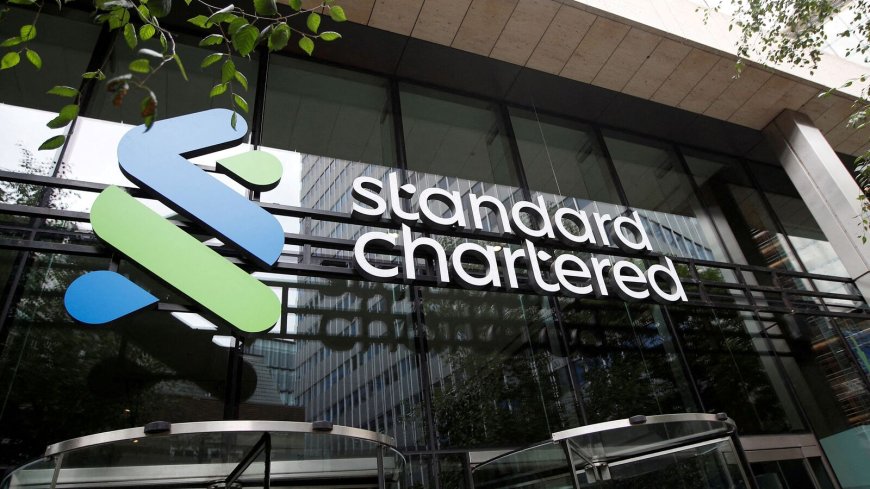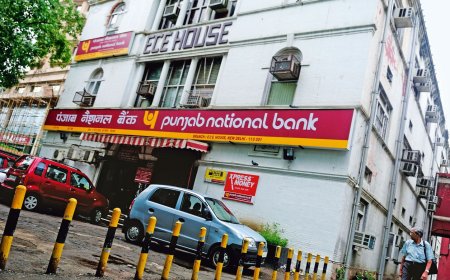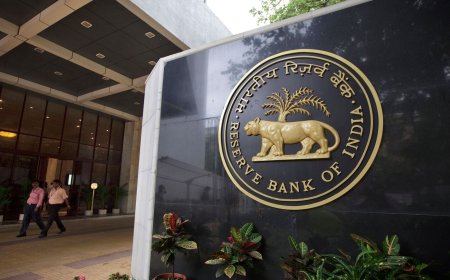Under the scanner! RBI probes Standard Chartered on lapses in derivative sales to SMEs
The RBI is investigating Standard Chartered for potential mis-selling of complex derivative products to SMEs. Allegations include lack of disclosure and violation of conduct norms.

Mumbai, June 18, 2025 — Global banking giant Standard Chartered is under regulatory scrutiny in India as the Reserve Bank of India (RBI) has launched a formal probe into alleged irregularities in the sale of complex derivative products to small and medium-sized enterprises (SMEs). The investigation reportedly centers around the mis-selling of structured financial instruments that may have exposed unsuspecting SME clients to significant financial risks.
Allegations of Mis-selling to Vulnerable SMEs
According to sources close to the matter, the central bank is examining whether Standard Chartered violated conduct guidelines by not fully disclosing the risks associated with derivative products offered to SME clients. These derivatives, often marketed as tools to hedge against currency or interest rate fluctuations, have in some cases resulted in heavy losses for clients unfamiliar with the intricacies of such instruments.
Several complaints lodged with the RBI allege that relationship managers at the bank did not adequately assess the financial sophistication of the clients or provide proper documentation outlining the risks, potentially breaching the RBI’s Fair Practices Code.
Regulatory Alarm and Industry Standards
The RBI, which has taken a cautious stance on derivatives trading since the global financial crisis of 2008, has increased its focus on ensuring transparency in derivative transactions, particularly those involving smaller businesses. An RBI official, speaking on condition of anonymity, said:
“We are reviewing whether the bank adhered to the mandatory disclosure norms and if the clients were misled or inadequately informed. Given the systemic risk potential, especially for SMEs, this is a matter of serious concern.”
Industry experts highlight that unlike large corporates with dedicated treasury teams, SMEs often lack the financial expertise to grasp the full implications of leveraged derivative positions.
Standard Chartered Responds
In response to the emerging probe, Standard Chartered Bank issued a statement:
“We are fully cooperating with the RBI and are committed to upholding the highest standards of client service and regulatory compliance. The bank has robust internal controls in place, and we continue to assess and improve our processes in line with evolving best practices.”
However, insiders indicate that some internal controls may have failed to flag questionable sales practices, prompting further internal reviews by the bank’s risk and compliance departments.
Market Context: A Familiar Risk Landscape
This isn’t the first time the Indian banking sector has faced questions over derivatives. In 2007–08, several Indian banks came under fire for selling exotic derivatives to SMEs without due diligence, leading to significant litigation. That episode prompted tighter RBI regulations, including a mandatory suitability and appropriateness test before offering complex products.
Financial analyst Aditi Nair from Axis Securities noted:
“This case is a déjà vu moment for regulators and markets alike. It reopens a decade-old debate about whether SMEs should even be allowed to trade in complex instruments without specialized oversight.”
The current probe may push regulators to revisit the framework for derivative sales yet again, especially in the SME space where financial literacy remains uneven.
Investor Reaction and Stock Performance
While Standard Chartered’s global stock has seen minimal movement so far, Indian financial markets are closely watching the development. Investors are particularly cautious about any potential regulatory fines or reputational damage that could impact the bank's operations in India, one of its fastest-growing markets.
In intraday trade, the bank’s Indian depository receipts (IDRs) showed a marginal decline of 0.8%, reflecting initial investor concern. Market watchers are awaiting further clarity from the RBI and the bank before drawing long-term conclusions.
What’s at Stake: A Broader Policy Review?
The RBI’s action may trigger broader implications beyond Standard Chartered. With India's ambition to become a global financial hub, financial regulators are under pressure to ensure that market sophistication doesn't come at the expense of financial integrity.
Avinash Kale, a corporate law expert at KPMG India, stated:
“If the probe reveals systemic issues, it may result in a sector-wide tightening of rules governing structured product sales to SMEs. Banks could be mandated to adopt clearer disclosures, enhanced audit trails, and stricter client suitability checks.”
Moreover, any evidence of regulatory non-compliance could invite penalties under the Foreign Exchange Management Act (FEMA) or the Banking Regulation Act.
Investor Outlook: Time to Reassess Compliance Risks
Investors, particularly in the BFSI (banking, financial services, and insurance) sector, are being advised to monitor compliance-related risks as much as financial metrics. With the RBI intensifying its supervisory role, any future misstep by financial institutions could lead to steep fines and damage to brand equity.
For SME clients and financial advisors, the episode serves as a cautionary tale. While hedging tools are important for navigating volatile markets, transparency and client understanding must remain paramount.
As the investigation continues, stakeholders across the banking ecosystem will be keenly observing both the outcomes and the precedents they set.
What's Your Reaction?
 Like
0
Like
0
 Dislike
0
Dislike
0
 Love
0
Love
0
 Funny
0
Funny
0
 Angry
0
Angry
0
 Sad
0
Sad
0
 Wow
0
Wow
0












































































